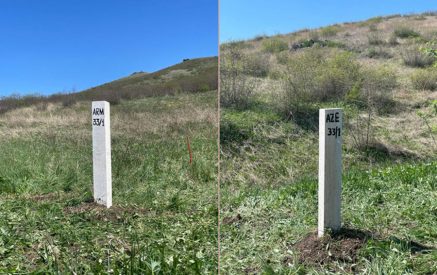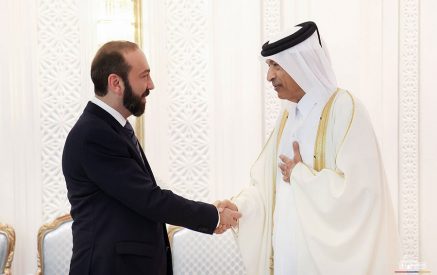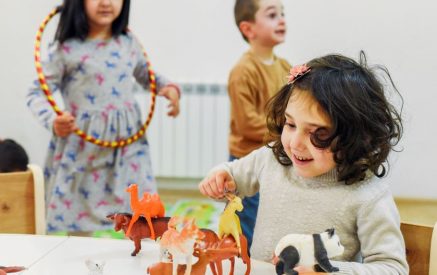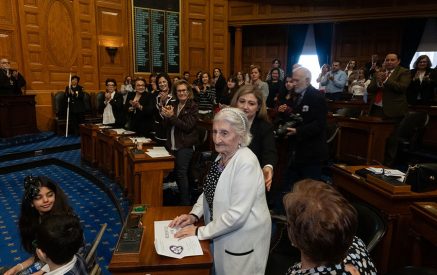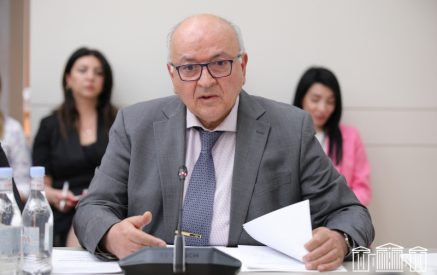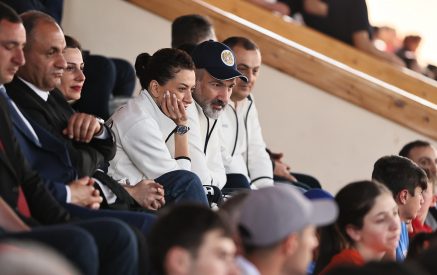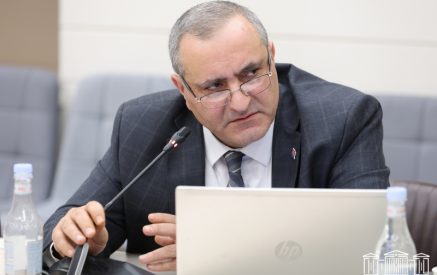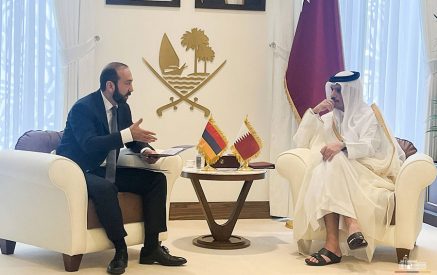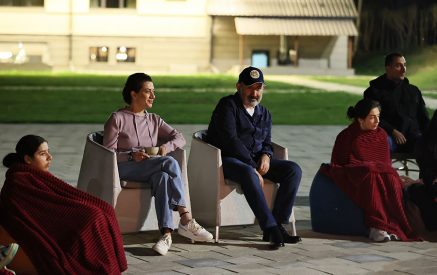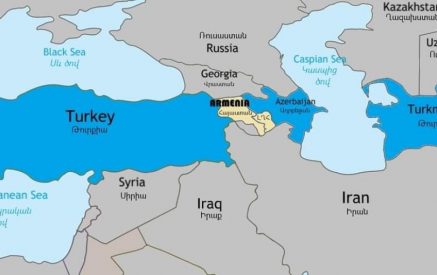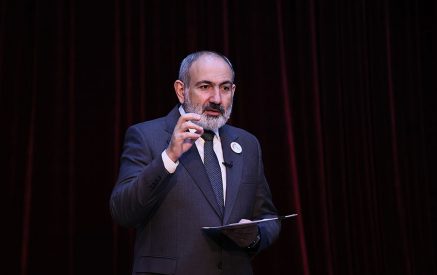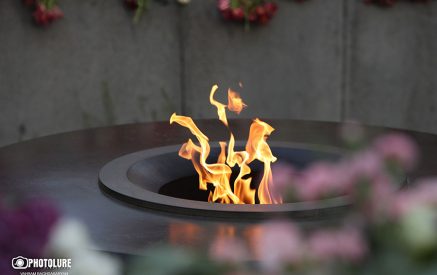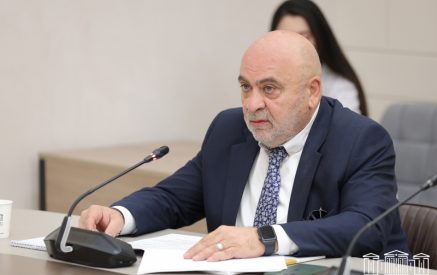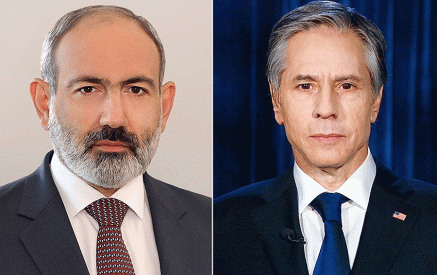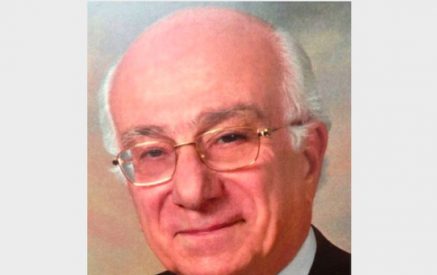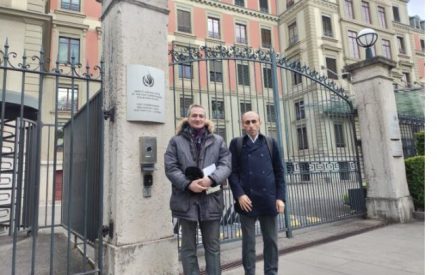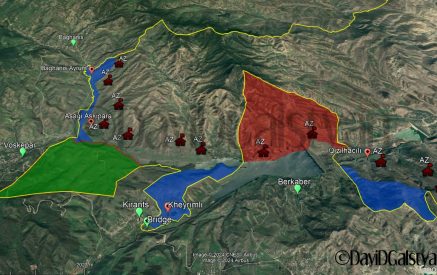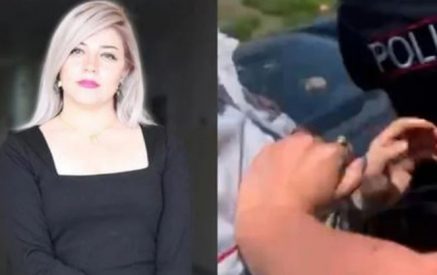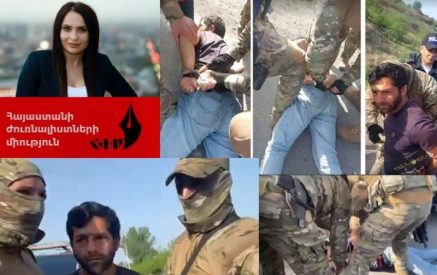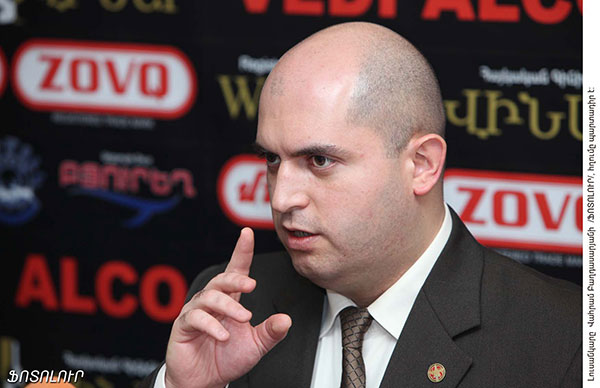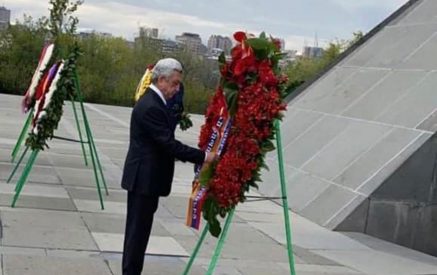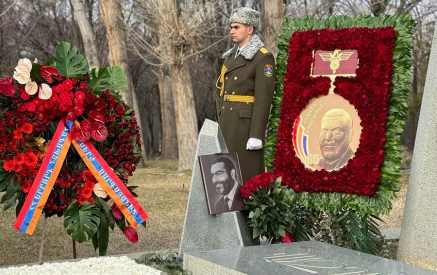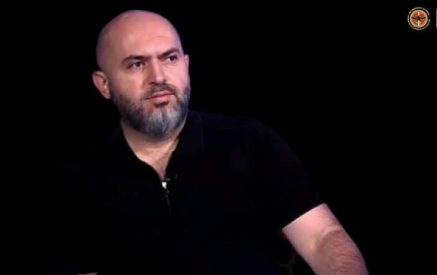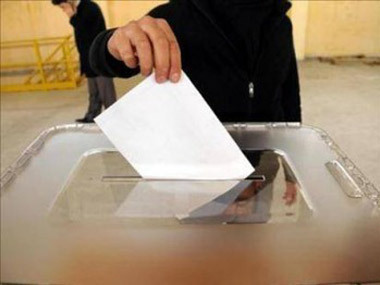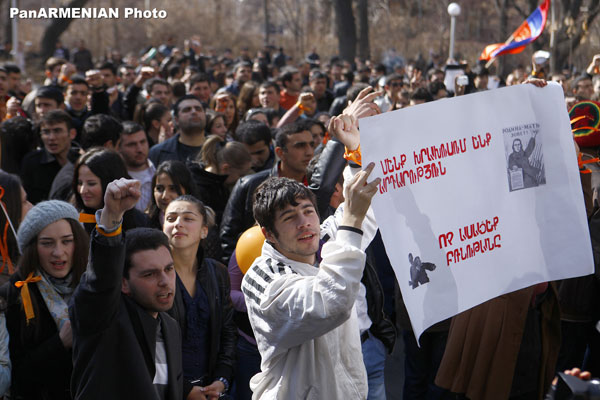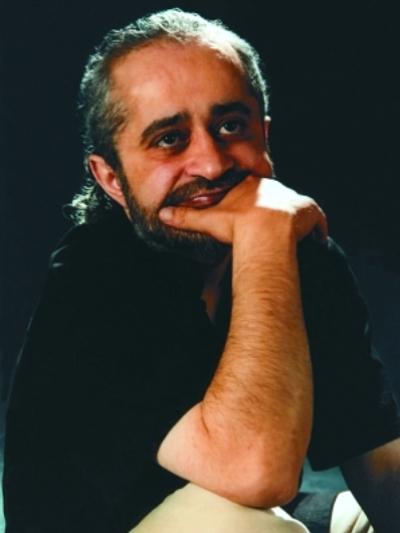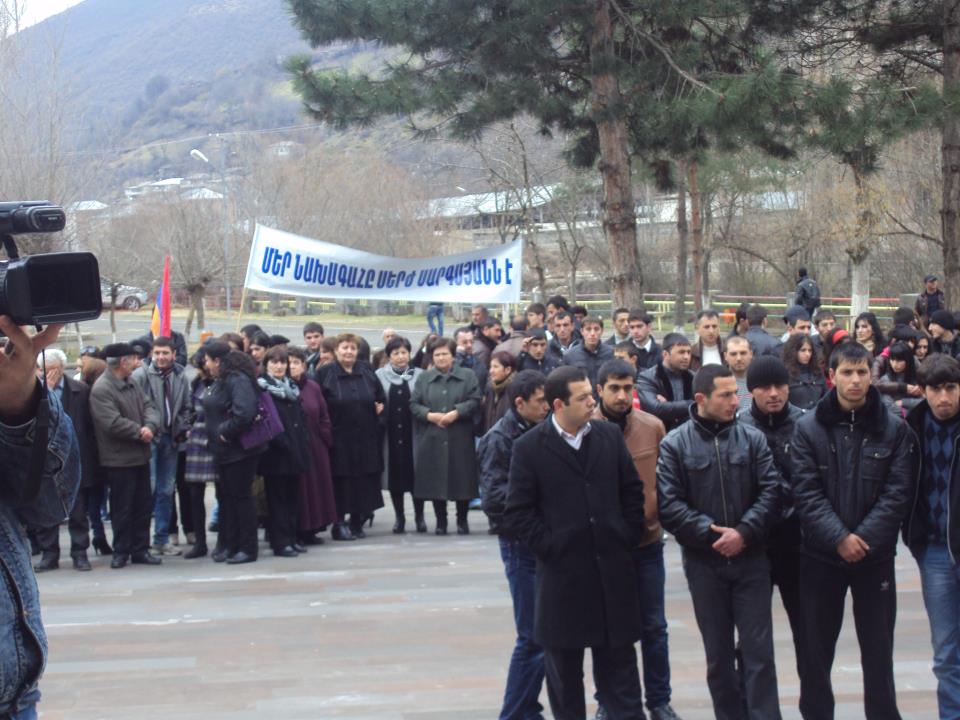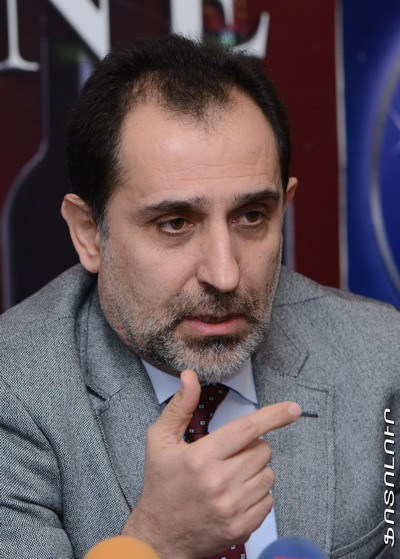Armen Ashotyan, a member of the RPA executive body, is not convinced that Levon Ter-Petrossian will manage “to build a political unit on ruins.”
* Was the election campaign of the RPA candidate effective? Was Serzh Sargsyan able to make his programs for the next five years known to the public, if we take into account that they were accessible to a small part of the public, since the meetings were mainly in halls?
* The Republican Party stated that the election campaign was not a means of a political struggle, but rather an opportunity to present our programs, our ideology to the public, have our say. From this perspective, I think that the
election campaign of the RPA candidate, during which he was able to enter into an open, honest dialogue with society, communicate with citizens of the Republic of Armenia openly and honestly, present our assessments of the past and the present and talk about the future, was justified. You know, our critics sometimes become victims of autotelic criticism too. When we held open-air, crowded meetings, we were criticized that those meetings were not efficient, because they were shows, rather than conversations. When we switched to the format of a conversation in a hall, they say they are not massive. Actually, they were rather massive also thanks to the fact that the press, covering all the candidates equally, also helped us say to the Armenian public what we wanted. Yes, there were a few hundred people in the halls, but what the president said was quickly spread by the mass media. We have actually fulfilled our task. There has been a dialogue; our complete conception of the past, the present, and the future is formed too. The Republican candidate is one of those unique candidates who made speeches about programs and its provisions for the people. I also think positively about the election campaign as a whole. Some candidates made progress in using campaign technologies. Raffi Hovhannisyan, in particular, used many innovative campaign elements, and made certain progress. Given the current internal political situation, Serzh Sargsyan and his team didn’t need to employ a big strategy of new technologies. We also adopted new political technologies in the campaign, but we haven’t used our whole arsenal of innovation and creativity, since there was no need for an overstrained campaign.
Read also
* You said that the campaign ensured an open and honest communication between the RPA candidate and citizens; wasn’t that communication too “casual and relaxed” in some cases, I mean the conversation between Serzh Sargsyan and an old villager in the village of Nerses about emigration and “the cucumber growing upside-down,” the words said to a sobbing woman in Yerablur, “What have you come to sob and upset our holiday for?” the statement about the election results made in Gyumri, “We will fix as many as you want.”
* I haven’t noticed any incident during the election campaign? When everything is smooth, they try to exaggerate anything that is a bit higher or a bit lower from the surface, making it an abyss or a mountain. Actually, we have conducted a very smooth election campaign. I don’t agree with the statements about slips. Even the words that the president said in the mentioned places and that fall on somebody’s ears were in some cases very honest assessments, in some cases humor, in some cases expression of human emotions. I think that the 21st century requires non-synthetic politicians. Natural and real as Serzh Sargsyan. The synthetic and nylon politicians are obsolete. Our society has learned how to tell the difference between the false and the real, regardless of whether some circles liked it, or they tried to seize these opportunities to make up some information shows or not. Our president is a human being with flesh and blood, with his emotions and his thoughts; even those cases prove that we have been
extremely human in our emotions, as well as our opinions, communication, and humor.
* Why did the RPA candidate evade a debate at least with the candidates he mentioned in different interviews and speeches as his rivals – Raffi Hovhannisyan, Hrant Bagratyan, and Paruyr Hayrikyan? Wouldn’t it have been more interesting to hear a debate between S. Sargsyan and R. Hovhannisyan on the Nagorno-Karabakh issue and approaches to foreign policy than to hear Sargsyan’s criticism of Hovhannisyan? Or instead of mocking phrases about Hrant Bagratyan’s “100 Steps,” to hear a debate between the two candidates on the future of the Armenian economy?
* It is surprising that such a tactic of ours during the election campaign becomes a reason for thorough examination and quasi-political conclusions. It is obvious that it is absurd to talk about a TV debate given the seven candidates.
* Serzh Sargsyan singled out three of them.
* Even with three candidates. As candidates for president, all seven are equal before the law, all seven are entitled to equal media coverage; all of them should be in the spotlight equally. To single out one or three of them means to give them a campaign handicap from the beginning. I understand that our opponents, rivals, the other candidates need that campaign handicap, but it doesn’t mean that we must meet their campaign needs. Certainly, there are cases in other countries when candidates are many, but two of them have a debate in the first round. The most striking example is the US, but there actually is a traditional bipartisan system there, and regardless of the number of candidates, it is obvious that the main struggle is between the Democrats and the Republicans. I would like it very much, if a traditional political system was formed in Armenia one day. The RPA has its niche in the political system already. If any other party manages to become the second or at least the third traditional political pole, it will be possible in a few years to talk about such a format. In this case, one can talk about a political debate in Armenia only in the second round. As for the responses, we have been criticized in the past 28 days. Serzh Sargsyan’s team has responded to most of it. There were some issues, to which the president decided to respond personally. If he hadn’t respond, they would have said that he had ignored, he had considered the other candidates as unserious and hadn’t even talked about them. There is a part of our society whose only principle is to criticize the government. If that part of autotelic critics agrees on a certain system of values, by which it will consider our actions, it will be easier to work with that part. However, since the aim is autotelic criticism, whatever one does, that part will make up and develop some subject to talk about. Criticisms are natural, and as the president put it in one of his campaign speeches, it is better to hear a hundred groundless criticisms, than to miss one grounded criticism.
* Forces and figures both participating and not participating in the presidential election have been talking about possible post-election developments. Taking into account those expectations and the fact that though the first president didn’t participate in the presidential election mentioning the age qualification as the reason for that, he has applied to establish a new party, what developments one can expect?
* Actually, today the rational part of the intellectual and political elite mostly thinks about and analyzes post-election Armenia. Our program, our president’s program is very ambitious, realistic, there is no populist, empty promise in that program, nor have there been such in Serzh Sargsyan’s speeches. And the post-election developments should be considered in three wings – the government, the opposition, and the state. The government wants to carry out radical reforms in the country, which should be accompanied by inner-party reforms. A party that wants to change the country should change itself. During the election campaign, Serzh Sargsyan has shown that vector of evolutional changes not only for the country, but also for the party. It is obvious that in the next five years we should completely turn the page of transitional democracy in the modern history, completely eliminate the threat of “Latin Americanization” in our country, put an end to the influence of the vested interests and the oligarchy on the government and the decision-making, put an end to the large capital’s sole influence on the internal political decisions. In the opposition camp, it is obvious that they will try to build some political unit on some ruins. As to how influential that unit, that process really will be, frankly speaking, I am not optimistic about that. Even today’s opposition is not as interested in being powerful opposition as the government is interested in having powerful opposition. This is an obvious fact. We would like it very much, if ideological, traditional political forces that fit in with the political system and whose agenda will not be destruction and reflex hatred toward the government were established in Armenia, in the opposition camp. The opposition that will have an agenda different from solely eliminating the current government. I don’t know whether it may be built on ruins or not, but it is obvious that that resource exists in civil society, and I don’t think that Nikol Pashinyan’s proposal and a set of other proposals, which really, without any kind of sarcasm and use of political technology, are praiseworthy, are random, because they may be successful.
* You said that one should “put an end to the influence of the vested interests and the oligarchy on the government and the decision-making, put an end to the large capital’s sole influence on the internal political decisions.” Does it mean that the RPA will request that oligarchs, businessmen of its parliamentary group hand in their resignations?
* Projecting such abrupt changes and making political analyses based on what I have said… I am talking about the principle. The situation in Armenia is becoming ripe for having not only the large capital, but also, first of all, civil society institutions influence the political decision-making. The scheme money-
government has been operating for many years. It is common in all countries around the world, but it is more complex – money-political institutions, interest groups-government. We should increase the distance between the government and money as much as we can, developing institutions with a serious system – civil society, press, trade unions etc.
NELLY GRIGORYAN
Aravot Daily

